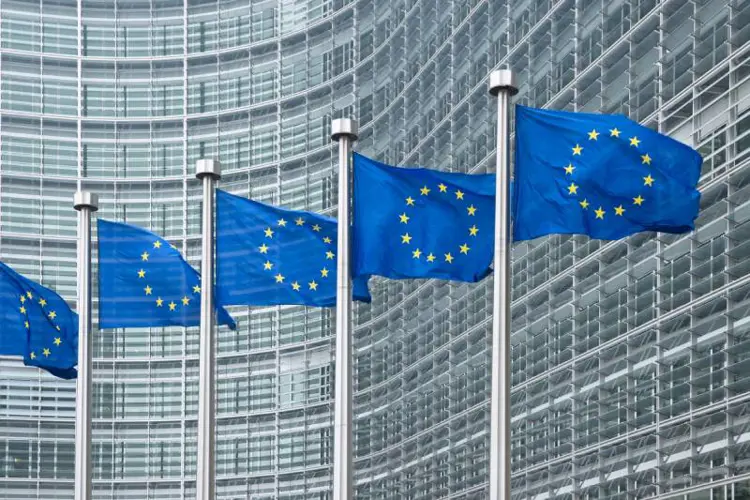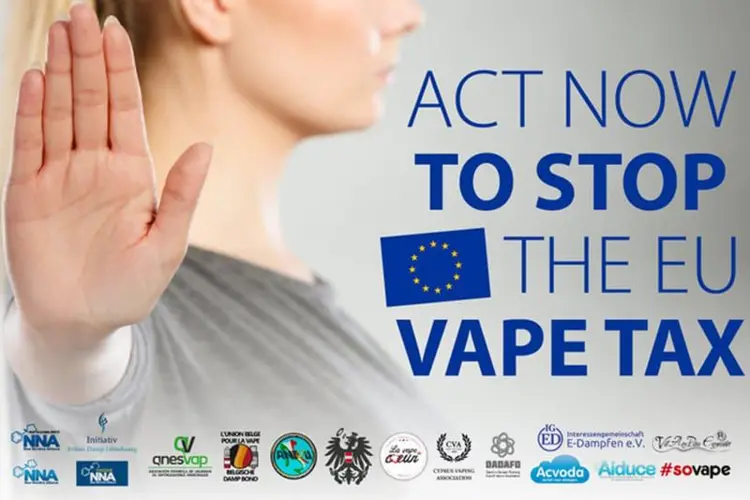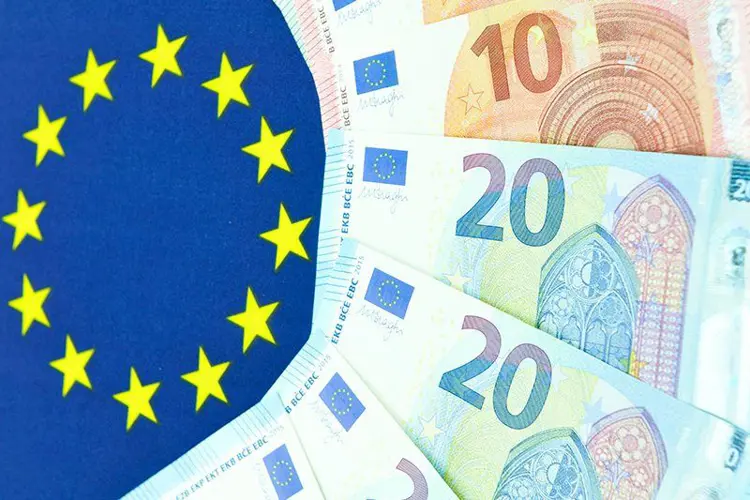The European Union will include vaping products in its harmonized tobacco tax framework, called the Tobacco Excise Directive, or TED. This became a virtual certainty after the Council of the EU recently approved “political guidance and priorities” for updated tobacco taxation rules, and asked the European Commission for legislative proposals. However, no final decision is likely to be made for a year or so.
Ministers from each member state make up the Council of the EU, and along with the European Parliament they pass laws. The European Commission (EC) proposes laws, and once passed, acts as the executive body and carries them out.
Since the TED is a Council Directive, any legislation sent from the EC must be approved by the Council—and it must be passed unanimously. Unlike the Tobacco Products Directive (TPD), the excise rules will not be decided by the European Parliament.
In its communication to the EC, the Council said it is “urgent and necessary to upgrade the EU regulatory framework, in order to tackle current and future challenges in respect of the functioning of the internal market by harmonising definitions and tax treatment of novel products (such as liquids for e-cigarettes and heated tobacco products), including products, whether or not containing nicotine, that substitute tobacco….”
If one or more large countries oppose setting a minimum tax, any such plan would be derailed. The ultimate policy must be approved unanimously.
Harmonizing means that member states agree to adopt uniform product definitions, regulatory procedures, and a common tax framework for products that are included in the standards. They can also set minimum tax rates (although the minimum could be set at zero) for each kind of product. A harmonized taxation system is intended to reduce or eliminate incentives for smuggling or illegal manufacture. Theoretically, if all governments (and businesses) operate with the same rules and standards, no individual country would gain advantage over the others.
Does that mean a minimum tax is inevitable? Not necessarily. According to EU vaping industry experts, there are reasons to be hopeful that the Council will not adopt a minimum tax on vaping products as part of a revised TED. First the Council did not specifically ask the EC for one. Rather, the ministers focused on the need to harmonize definitions. More importantly, the adoption of changes to the TED requires a unanimous vote of the Council, which is no simple task—especially on complicated legislation. The Council will likely want to avoid unnecessary controversies that could get in the way of a consensus.
While it may seem logical that the EU would want to encourage the recovery of lost cigarette tax revenue in member countries by setting a minimum tax on vaping products, experts say that such an outcome isn’t at all certain. If one or more large countries oppose setting a minimum tax, any such plan would be derailed. And remember, the policy that is ultimately settled upon must be approved unanimously.
There will be other disputes over necessary choices in the TED that are more important to all the countries—including setting a minimum cigarette tax—and delegates will want to avoid hanging up negotiations over a lesser issue, especially if France or another powerful country takes a firm position on the lesser issue.
France itself may be the key. The country is home to a vibrant vaping market, and there is support for vaping as a harm reduction tool, including by the French health minister. With the U.K. now out of the EU, France will likely be the best target for vaping advocates when the time comes to apply pressure.
Vapers participated in the consultation in large numbers, with most strongly opposed to a minimum tax.
Of course, the lack of a harmonized tax structure (and a minimum tax rate) in the EU doesn’t prevent individual countries from imposing taxes. Twelve of the 27 EU member states currently have some kind of tax on vaping products. Additionally, Poland is scheduled to begin collecting a tax on July 1, and Croatia has a tax on the books, but it’s currently set to zero. Most of the taxing countries have per-milliliter e-liquid levies, ranging from Italy’s €0.08 (€0.04 for zero-nicotine e-juice) to €0.30 in Finland and Portugal. (One Euro—€1—is currently equal to $1.13.)
The member countries of the EU, even without the U.K., collectively make up the second-largest economy in the world—and the second-largest vaping market. As it stands now, only two of the 10 biggest individual economies in the EU—Italy and Sweden—have a tax on vaping products (Poland’s begins July 1). And while Italy does have a modest e-liquid tax, most of the largest, most economically powerful countries in the EU have no tax at all. That includes four of the five biggest EU economies: Germany, France, Spain, and the Netherlands. Those four countries together account for nearly half of the entire 27-country EU’s gross domestic product.
Germany and Spain are likely to impose a tax on vaping products after the TED revision, according to insiders. That again leaves France as the best bet among the largest EU economies to oppose a minimum EU-wide tax rate being included in the harmonized taxation scheme.
Upcoming consultations on the TED revision will include vaping industry advocates, and also consumer representatives. The continent is home to a new organization—European Tobacco Harm Reduction Advocates (ETHRA)—that is a consortium of consumer groups from European countries. ETHRA will devise a game plan to guide EU vaping consumers in applying pressure where its most needed when the time comes.
Background on the Tobacco Excise Directive and vaping
The European Union included vapor products in its Tobacco Products Directive (TPD) that took effect in 2016, harmonizing product standards, regulations and cross-border advertising rules. Decisions on a taxation framework were postponed until a scheduled overhaul of the Tobacco Excise Directive (TED) was done. That is what is happening now, with the final approval probably coming next year. The TED was last updated in 2011.
In January 2018, the European Commission announced it would delay a decision on taxing vapes until the TED review was completed, because it needed more data on the vaping market. From May to September of that year, the European Commission’s taxation policy arm, the Taxation and Customs Union (DG TAXUD) opened a public consultation to gather opinion on imposing an EU-wide tax on vapes, and soon after began studying the issue in earnest.
Vapers participated in the consultation in large numbers, with most strongly opposed to a minimum tax. Of more than 11,000 public comments, 96 percent were from individuals, and the Commission noted that “The high rate of response among individual citizens is primarily due to the massive participation of e-cigarettes consumers.”
In its February 2020 evaluation—released less than a month after the United Kingdom left the EU—the European Commission noted that “the widespread concern among e-cigarettes stakeholders and consumers about the possible adverse effects of e-cigarettes taxation should be noted, although a significant share of operators would seemingly support a harmonised definition with no minimum rate attached to it.”
The Freemax REXA PRO and REXA SMART are highly advanced pod vapes, offering seemingly endless features, beautiful touchscreens, and new DUOMAX pods.
The OXVA XLIM Pro 2 DNA is powered by a custom-made Evolv DNA chipset, offering a Replay function and dry hit protection. Read our review to find out more.
The SKE Bar is a 2 mL replaceable pod vape with a 500 mAh battery, a 1.2-ohm mesh coil, and 35 flavors to choose from in 2% nicotine.
Because of declining cigarette sales, state governments in the U.S. and countries around the world are looking to vapor products as a new source of tax revenue.
The legal age to buy e-cigarettes and other vaping products varies around the world. The United States recently changed the legal minimum sales age to 21.
A list of vaping product flavor bans and online sales bans in the United States, and sales and possession bans in other countries.



















